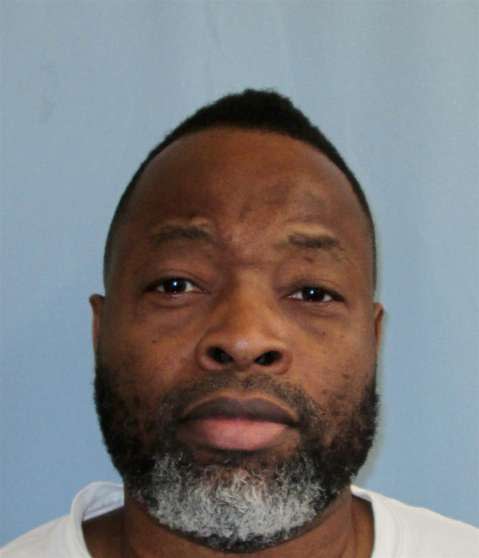Federal judge denies Joe Nathan James Jr.’s requests for stay of execution on July 28
A federal judge on Wednesday denied Joe Nathan James Jr.’s requests for a stay of execution. Barring possible last-minute court intervention, James will die by lethal injection on July 28.

James, 49, was sentenced to death for capital murder in the 1994 killing of his former girlfriend, Faith Hall.
In June and early July, James filed several lawsuits in the U.S. District Court for the Southern District of Alabama against the state attorney general and numerous justice system officials. U.S. District Judge Terry F. Moorer considered issuing motions for a preliminary injunction in three of James’ lawsuits.
A “substantial likelihood” of the suit’s success must exist for a judge to issue a preliminary injunction, according to legal precedents cited in Moorer’s rulings. A preliminary injunction would have stayed James’ execution until the pending case or cases had been fully heard.
James still has two pending requests for an injunction from a pair lawsuits he filed in the court on July 5. As of Wednesday afternoon, Moorer had not indicated whether he would consider those requests, according to court records.
Joe Nathan James: Federal judge considering injunction for July 28 execution of Joe Nathan James Jr.
Kit Ekman, chief deputy clerk for the U.S. District Court for the Southern District of Alabama, said it is still theoretically possible that Moorer would issue a stay in those two lawsuits.
James can also appeal Moorer’s rulings in a higher court, but time is running out, Ekman said.
“Certainly he’s got appellate rights, and he’s got the right to take the issues up with the 11th Circuit Court of Appeals in the two-plus weeks he’s got left to do it,” Ekman said. “The execution date is set for July 28th; today’s the 13th. Not much time.”
James claimed he was not given the opportunity to elect execution by nitrogen hypoxia, an untested method of execution, in his lawsuit against Attorney General Steve Marshall. While Moorer denied James’ request for an injunction in the lawsuit against Marshall, he had not dismissed the case itself as of Wednesday afternoon, according to court records.
James’ request for a permanent injunction could still come if a final ruling is made before his execution date, but there is not sufficient evidence to warrant court intervention prior to a final ruling, Ekman said.
James claims that Marshall entered into an agreement with the Federal Defenders of the Middle District of Alabama, allowing only their clients to elect nitrogen hypoxia. James says the federal defenders told their clients that those who didn’t elect nitrogen hypoxia would have their executions date set before those who did as the state developed protocol for performing executions with the untried method.
James, allegedly unaware that he could delay his execution by electing nitrogen hypoxia, said the treatment violated his right to equal protection under the 14th Amendment.
Moorer cited an earlier ruling from a similar case in the 11th Circuit Court of Appeals.
“Ironically, if the State did allow [plaintiff] to make the belated election he seeks, it would be treating him differently than other death-row inmates who were not afforded the same benefit,” the appeals court ruled in Price v. Commissioner, Alabama Department of Corrections.
Moorer dismissed James’ two other lawsuits in which he was considering a preliminary injunction on Monday and Wednesday.
James made similar claims in both lawsuits, alleging that the Alabama Supreme Court order for his execution did not constitute an execution warrant. James listed a host of officials in his complaints, including Alabama Department of Corrections Commissioner John Hamm and Holman Correctional Facility Warden Terry Raybon.
Moorer said that James’ claims were “simply incorrect,” according to court records.
According to reporting by the Associated Press, James forced his way into Hall's Birmingham home on Aug. 15, 1994, accused her of infidelity and shot her. Hall died of multiple gunshot wounds.
A Jefferson County jury convicted James in 1996 and recommended the death penalty, which a judge imposed. The Alabama Court of Criminal Appeals overturned the conviction, ruling a judge wrongly admitted police reports into evidence. James was retried and sentenced to death in 1999.
Evan Mealins is the justice reporter for the Montgomery Advertiser. Contact him at emealins@gannett.com or follow him on Twitter @EvanMealins.
Your subscription makes our journalism possible. Subscribe today.
This article originally appeared on Montgomery Advertiser: Joe Nathan James Jr.’s requests for a stay of execution was denied
